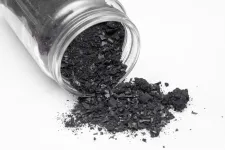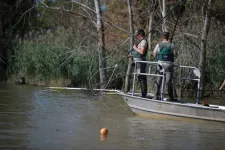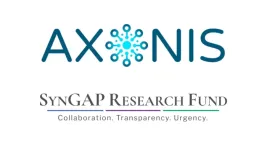(Press-News.org) SAN ANTONIO — April 5, 2023 —Southwest Research Institute and Tecnológico de Monterrey (Tec de Monterrey) will jointly fund three research and development initiatives to advance sustainable manufacturing and technology in the United States and Mexico. The trio of projects are the first selected to receive support through the Sustainable Manufacturing Program, a transnational research and development collaboration established between SwRI and Tec de Monterrey — a private, nonprofit, independent university based in Monterrey, Mexico — in August 2022. The program provides grant opportunities funded by both organizations.
“The funded project teams proposed creative solutions to improve the environment and advance sustainable practices in manufacturing,” said SwRI President and CEO Adam L. Hamilton, P.E. “We look forward to the progress that develops from this collaboration and the long-term impact of this research on industry and the planet.”
Sustainable manufacturing practices conserve energy and natural resources, using technology and materials that protect the environment while supporting technical advancements. Each project includes researchers from both organizations. Of nine proposals received in phase one of the program, three were chosen to receive $75,000 from each organization. Teams have one year to develop their concepts.
SwRI’s Eloy Flores III and Dr. Michael MacNaughton will collaborate with Tec’s Dr. Alejandro Montesinos-Castellanos and Dr. Ladislao Sandoval Rangel on a carbon capture and utilization project to reduce carbon dioxide emissions, creating biochar using unique pyrolysis processing techniques. Biochar, a charcoal-like substance made by heating organic material in an oxygen-free environment, contains carbon dioxide captured from the atmosphere and can be recycled for other uses, such as fertilizing soil. The focus of this project is to evaluate biochar as an advanced material for CO2 capture and storage.
SwRI’s Alice Y. Yau and Tec’s Dr. Cecilia Daniela Treviño-Quintanilla will research how to recycle and reuse industrial rubbers and plastics, which often end up in landfills or oceans. Researchers will break down the industrial materials to develop bio-based compounds to create environmentally friendly raw materials. The new compounds could potentially support engineering design and creation of foams, adhesives, coatings, and other industrial and biomedical materials.
SwRI’s Matthew Kirby and David Riha along with Tec’s Dr. Alex Elías-Zúñiga will develop a recyclable carbon-fiber-reinforced polymer (CFRP) composite. These composites, which are strong, lightweight alternatives to steel and aluminum alloys, are increasingly being used in aerospace, automotive and biomedical applications. Current CFRP materials are not easily recycled. The researchers also plan to develop processes to design and implement sustainable CFRP composites created through composite forging, an energy-efficient manufacturing technique.
In phase two of the program, project teams can request additional funding from SwRI and Tec de Monterrey and pursue external funding to further develop their sustainable technology.
For more information on SwRI’s manufacturing research and development program, visit https://www.swri.org/industries/manufacturing-technologies.
END
SwRI, Tec de Monterrey award funding for sustainable manufacturing research
Three R&D projects selected for transnational collaborative program
2023-04-05
ELSE PRESS RELEASES FROM THIS DATE:
How were amino acids, one of the key building blocks of life, formed before the origin of life on Earth? Tiny particles from the near Earth asteroid Ryugu can help answer this profound question
2023-04-05
Our solar system formed from a molecular cloud, which was composed of gas and dust that was emitted into the interstellar medium (ISM), a vast space between stars. On collapse of the molecular cloud, the early sun was formed, with a large disk of gas and dust orbiting it. The dusty material collided to produce rocky material that would eventually grow in size to give large bodies called planetesimals.
The planetesimals that formed far enough from the sun, also contained large quantities of ice. The ice consisted of water and other volatile compounds, such as carbon monoxide (CO), carbon dioxide (CO2), methanol (CH3OH) and ammonia (NH3), as well as ...
Air pollution is linked to lower COVID-19 vaccine responses
2023-04-05
People exposed to higher levels of air pollution before the pandemic had lower antibody responses to COVID-19 vaccines, according to a study led by the Barcelona Institute for Global Health (ISGlobal), an institution supported by “la Caixa” Foundation, in collaboration with the Germans Trias i Pujol Research Institute (IGTP). In particular, exposure to fine particulate matter (PM2.5), nitrogen dioxide (NO2) and blank carbon (BC) was associated with about a 10% decrease in IgM and IgG antibody responses in people without prior infection. The findings, published in Environmental Health Perspectives, ...
More than a third of children worry at least once a week, with their tendency to worry progressing with age, according to national survey by Nemours KidsHealth(R)
2023-04-05
WILMINGTON, Del. (April 5, 2023) – More than one in three children ages 9 to 13 (37%) worry at least once a week, primarily about school (64%) and friendships (41%), with their tendency to worry progressing with age. Older children (age 13) are more likely than their younger counterparts to report feeling as though they will never stop worrying (48% vs. 22% for 9-year-olds). This is according to the results of What’s Worrying America’s Kids, a national survey conducted by The Harris Poll on behalf of Nemours KidsHealth. The survey results ...
TOS endorses global editorial on people-first language and pediatric obesity
2023-04-05
ROCKVILLE, Md.—The Obesity Society (TOS) has joined several European, US and Canadian obesity organizations in an editorial statement published in the journal Pediatric Obesity championing the use of people-first language for pediatric overweight and obesity to address weight stigma and bias.
Professor David Thivel, president of the European Childhood Obesity Group and coordinator of the joint statement, said, "This paper emphasizes the importance of considering the use of people-first language when it comes to pediatric obesity, by all who work with, care for or support children and adolescents, in order to avoid stigmatization and to create an appropriate and optimal ...
Complications for procedure to open clogged pulmonary arteries decrease significantly
2023-04-05
For patients with high blood pressure in their pulmonary arteries caused by chronic blood clots, complications after a minimally invasive balloon angioplasty have decreased substantially over the last decade, a Michigan Medicine-led study finds.
Researchers examined over 7,500 cases of balloon pulmonary angioplasty for patients with chronic thromboembolic pulmonary hypertension, an elevated blood pressure in the pulmonary arteries due to persistent blockages known as CTEPH, between 2013 and 2022. The procedure, which is offered ...
New tool shows progress in fighting spread of invasive grass carp in Great Lakes
2023-04-05
New research reveals the progress scientists at The University of Toledo are making in their ongoing efforts to capture and remove invasive grass carp from the Great Lakes.
Researchers based at the UToledo Lake Erie Center created a new way to estimate the abundance of invasive “sleeper” species in freshwater ecosystems and help guide management strategies.
Using data collected during their efforts to remove invasive grass carp from Lake Erie and its tributaries, the aquatic ecologists and environmental ...
Recent advances in space chemistry research
2023-04-05
Space is the great unknown — very few of us will ever experience what it’s like to visit another planet or moon, and so much is yet to be discovered. Below are some recent papers published in ACS journals that report advances toward understanding whether certain minerals, compounds or even life itself could form on other worlds. Reporters can request free access to these papers by emailing newsroom@acs.org.
“Immunoanalytical Approach for Detecting and Identifying Ancestral Peptide Biomarkers in Early Earth Analogue Environments”
Analytical Chemistry
March 16, 2023
These authors reasoned that if they could analyze “resurrected” ...
Survey of allergists/immunologists reveals management of hereditary angioedema differs by region
2023-04-05
ARLINGTON HEIGHTS, Ill. (April 5, 2023) – Hereditary angioedema (HAE) is a disease that, due to its rare nature, can pose difficulties for both patients and medical professionals. A new survey of allergists/immunologists from the American College of Allergy, Asthma and Immunology (ACAAI) shows that diagnosing, treating and managing this condition can be challenging for patients and healthcare providers - including patients in rural areas. An article about the survey is published in Annals of Allergy, Asthma and Immunology, ACAAI’s scientific journal.
HAE is caused by a genetic mutation, and there are different types. It is a hereditary disease. The symptoms of HAE ...
SynGAP Research Fund awards a collaborative grant to Tang Lab & AXONIS Therapeutics
2023-04-05
PALO ALTO, Calif. (April 5, 2023) – SynGAP Research Fund (SRF), a 501(c)(3) public charity whose mission is to improve the quality of life for SYNGAP1 patients through the research and development of treatments, therapies and support systems, today announced they have awarded a $130,000 collaborative grant to the lab of Xing Tang, PhD at Boston Children's Hospital & AXONIS Therapeutics to investigate the treatment effects of KCC2-enhancing small molecule compounds in SYNGAP1 haploinsufficiency.
Principal Investigator of translational neuroscience at AXONIS, Dr. Kadam, has been working with the SRF community for many years. While at Johns Hopkins, she gave a popular SRF ...
Manganese in Central Valley water threatens fetuses and children
2023-04-05
Water in California’s Central Valley contains enough manganese to cause cognitive disabilities and motor control issues in children, and Parkinson’s-like symptoms in adults.
A naturally occurring metal, manganese is found in water supplies throughout the world. It is regulated as a primary contaminant in many Southeast Asian countries where the climate causes it to leach into groundwater. However, in the U.S. it is regulated only as a secondary contaminant, meaning no maximum level is enforced.
A ...
LAST 30 PRESS RELEASES:
Pekingese, Shih Tzu and Staffordshire Bull Terrier among twelve dog breeds at risk of serious breathing condition
Selected dog breeds with most breathing trouble identified in new study
Interplay of class and gender may influence social judgments differently between cultures
Pollen counts can be predicted by machine learning models using meteorological data with more than 80% accuracy even a week ahead, for both grass and birch tree pollen, which could be key in effective
Rewriting our understanding of early hominin dispersal to Eurasia
Rising simultaneous wildfire risk compromises international firefighting efforts
Honey bee "dance floors" can be accurately located with a new method, mapping where in the hive forager bees perform waggle dances to signal the location of pollen and nectar for their nestmates
Exercise and nutritional drinks can reduce the need for care in dementia
Michelson Medical Research Foundation awards $750,000 to rising immunology leaders
SfN announces Early Career Policy Ambassadors Class of 2026
Spiritual practices strongly associated with reduced risk for hazardous alcohol and drug use
Novel vaccine protects against C. diff disease and recurrence
An “electrical” circadian clock balances growth between shoots and roots
Largest study of rare skin cancer in Mexican patients shows its more complex than previously thought
Colonists dredged away Sydney’s natural oyster reefs. Now science knows how best to restore them.
Joint and independent associations of gestational diabetes and depression with childhood obesity
Spirituality and harmful or hazardous alcohol and other drug use
New plastic material could solve energy storage challenge, researchers report
Mapping protein production in brain cells yields new insights for brain disease
Exposing a hidden anchor for HIV replication
Can Europe be climate-neutral by 2050? New monitor tracks the pace of the energy transition
Major heart attack study reveals ‘survival paradox’: Frail men at higher risk of death than women despite better treatment
Medicare patients get different stroke care depending on plan, analysis reveals
Polyploidy-induced senescence may drive aging, tissue repair, and cancer risk
Study shows that treating patients with lifestyle medicine may help reduce clinician burnout
Experimental and numerical framework for acoustic streaming prediction in mid-air phased arrays
Ancestral motif enables broad DNA binding by NIN, a master regulator of rhizobial symbiosis
Macrophage immune cells need constant reminders to retain memories of prior infections
Ultra-endurance running may accelerate aging and breakdown of red blood cells
Ancient mind-body practice proven to lower blood pressure in clinical trial
[Press-News.org] SwRI, Tec de Monterrey award funding for sustainable manufacturing researchThree R&D projects selected for transnational collaborative program



